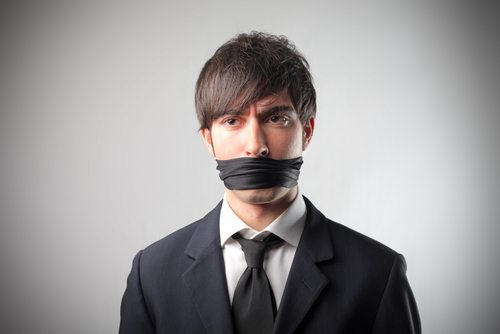

Governments around the world are increasingly turning to censorship to silence their opponents online, according to a report by US advocacy group Freedom House.
Entitled ‘Freedom on the Net: A Global Assessment of Internet and Digital Media‘, the third annual report saw 20 countries out of 47 going down in the ranking of Internet freedom. Pakistan, Bahrain and Ethiopia were the countries where the decline was the most severe, while Estonia had the greatest degree of Internet freedom.
Freedom House also reported a rise in levels of social activism online, but warned that methods used by the oppressive regimes to deal with dissidents are becoming more complex, and are no longer limited to website blocking and arrests.
According to the report, Estonian Internet users were least restricted in what they could say online, followed by the US, Germany and Australia. UK came eighth in the list, losing most points on the “Violations of User Rights” metric.
Eleven countries received a ranking of “Not Free”, including Iran, Cuba, China, Belarus, Saudi Arabia, Uzbekistan and Thailand.
Since the previous report, in 19 of the 47 countries examined, new laws or directives have been passed that either restrict online speech, violate user privacy, or punish individuals who post content deemed objectionable or undesirable.
In 26 of the inspected countries, at least one blogger or ICT user was arrested for content posted online or sent via text message. In 19 countries, a blogger or Internet user was tortured, disappeared, beaten, or brutally assaulted as a result of their online posts. There were five cases when an activist or journalist was killed for posting something on the Web.
Freedom House warned that paid pro-government commentators, who were employed in just a few countries two years ago, can now be found in 17 of the 47 countries examined. In 12 countries, a new law or directive disproportionately enhanced surveillance or restricted user anonymity.
In China, 2011 saw new laws being introduced to force all bloggers to register under their real name. According to the report, the Chinese government abducted dozens of activists and bloggers, holding them for weeks and sentencing several to prison.
Among the states most likely to increase censorship in the coming year, Freedom House identified Azerbaijan, Libya, Malaysia, Pakistan, Russia, Rwanda and Sri Lanka.
“The findings clearly show that threats to Internet freedom are becoming more diverse. As authoritarian rulers see that blocked websites and high-profile arrests draw local and international condemnation, they are turning to murkier – but no less dangerous -methods for controlling online conversations,” said Sanja Kelly, project director for Freedom on the Net at Freedom House.
At the same time, 14 countries saw governments ease the control of the Internet, with Tunisia and Burma experiencing the largest improvements after dramatic political change.
The past year saw protests against SOPA and PIPA take place across Europe, and activists all over the world took an active part in protecting the freedom of the Internet. In nearly half of the countries studied, protest campaigns resulted in censorship plans being shelved, harmful legislation overturned, or jailed activists being released.
Can you look after your personal data online? Take our quiz!
Chinese researchers publish details on device that could wreak havoc on undersea communications cables in…
Former Intel chief Gelsinger expands role at Gloo, becoming executive chairman and head of technology…
MEPs add to Commission pressure for second EU Chips Act amidst industry calls for renewed…
Smartphone maker Xiaomi reportedly raises about $5.5bn in Hong Kong share sale as it invests…
BYD's Qin L EV sedan starts at about half the price of Tesla's Model 3,…
Meta says it will stop targeting personalised Facebook ads at UK woman after legal battle,…